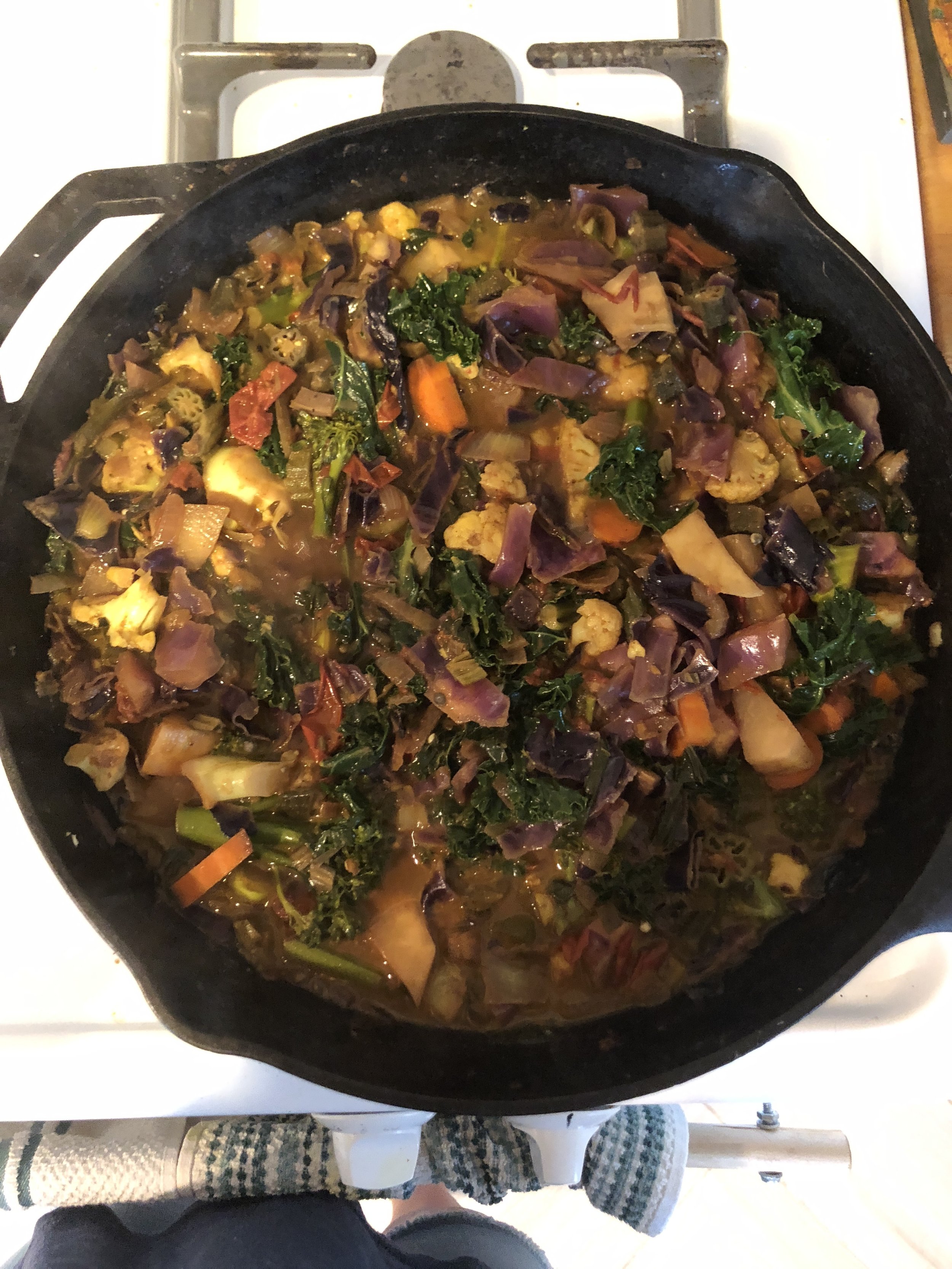#VEGGISVEKO DAY 2
Chana Masala 1-2 servings
Ingredients
3 tablespoons oil (coconut oil or olive oil)
½ yellow onions 3 cloves of garlic, finely chopped
1 whole chili without seeds, finely chopped (add more or less according to how spicy you want. It becomes medium spicy with a whole chili)
1 handful of finely chopped fresh coriander
1 topped ts cumin 1 topped
tsp malt turmeric
1 topped tsp malted coriander
1x finely chopped ginger or 1 tablespoon of ground ginger
½ teaspoon of salt
1 box of canned tomatoes
1 box of canned chickpeas
1ts garam masala (optional, both in paste and spice mix), possibly ½ teaspoon cardamom, 1/8 teaspoon ground mashed potatoes, a little pepper, ¼ teaspoon of malt carnations.
1 tablespoon lemon juice.
RESULT: I made mine with a lot of veggies and ditched the chickpeas and it tasted so good!!!
This is what you do
Oils, onions, garlic, fresh coriander, chili are cooked in a pan of high heat together with cumin, salt, turmeric, ground coriander and ginger for a few minutes. Add more oil if it is too dry on the pan. Then add canned tomatoes and canned chickpeas with either garam masala or spice mix. It's not a crisis if you do not have all of these spices. Add some water if necessary, the masala should have a slightly thick, juicy consistency. Let simmer for 15-20 minutes. Stir occasionally. Season with salt, sugar, chili etc. Remove the heat and stir in 1ss lemon juice. Can be eaten as it is, then it is enough for one person or server with rice or quinoa, for example, it's enough for two.
What is The easiest way to reduce our Greenhouse Gas Emissions?
If everyone in Norway eats one vegetarian meal a week, it has the same effect as removing 170 000 cars from the roads for a whole year (1). If everyone in the world turned vegetarian, it would reduce the Greenhouse Gas Emissions related to food production by 60 %. Moreover, if everyone turned vegan, it would further reduce the emissions by 10 % (2). Since food-related emissions account for about 15% of total global emissions (1), this will, in other words, have a very big effect. It may not be realistic to expect everyone to turn vegan or even vegetarian overnight, but if we all eat a little bit less meat, it will help! It might even ensure our children and grandchildren can experience the same wonderful and snowy winters we've been so lucky to live through.
We already know how to reduce emissions from the livestock industry, reducing the consumption of meat is one of the simplest and most effective ways to achieve this. What we lack is the will to implement and carry through the solutions. Therefore, POW Norway and I urge you to have a meet free week this February! I will be posting inspirational recipes and facts regularly - to show you just how easy, and important, this is.
Kilder/sources:
http://www.framtiden.no/201409246561/aktuelt/mat/kjottfri-dag-=-200.000-farre-biler.html
http://www.oxfordmartin.ox.ac.uk/news/201603_Plant_based_diets



